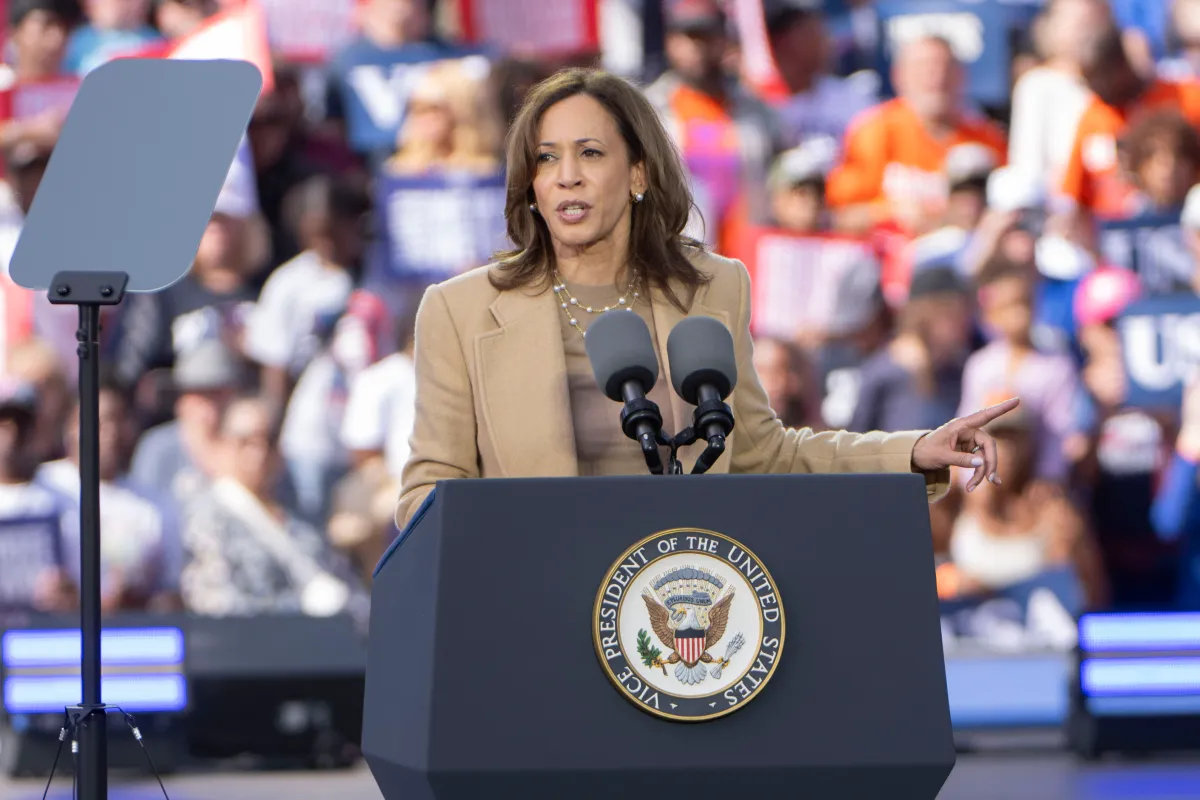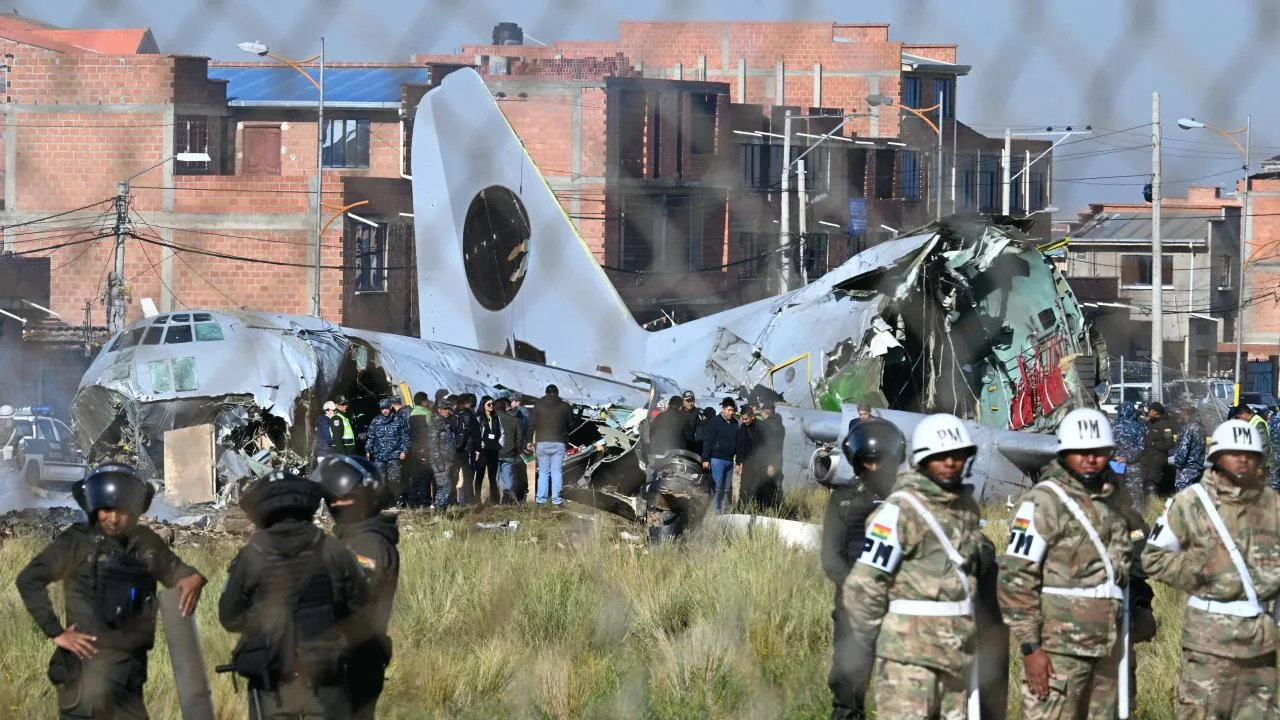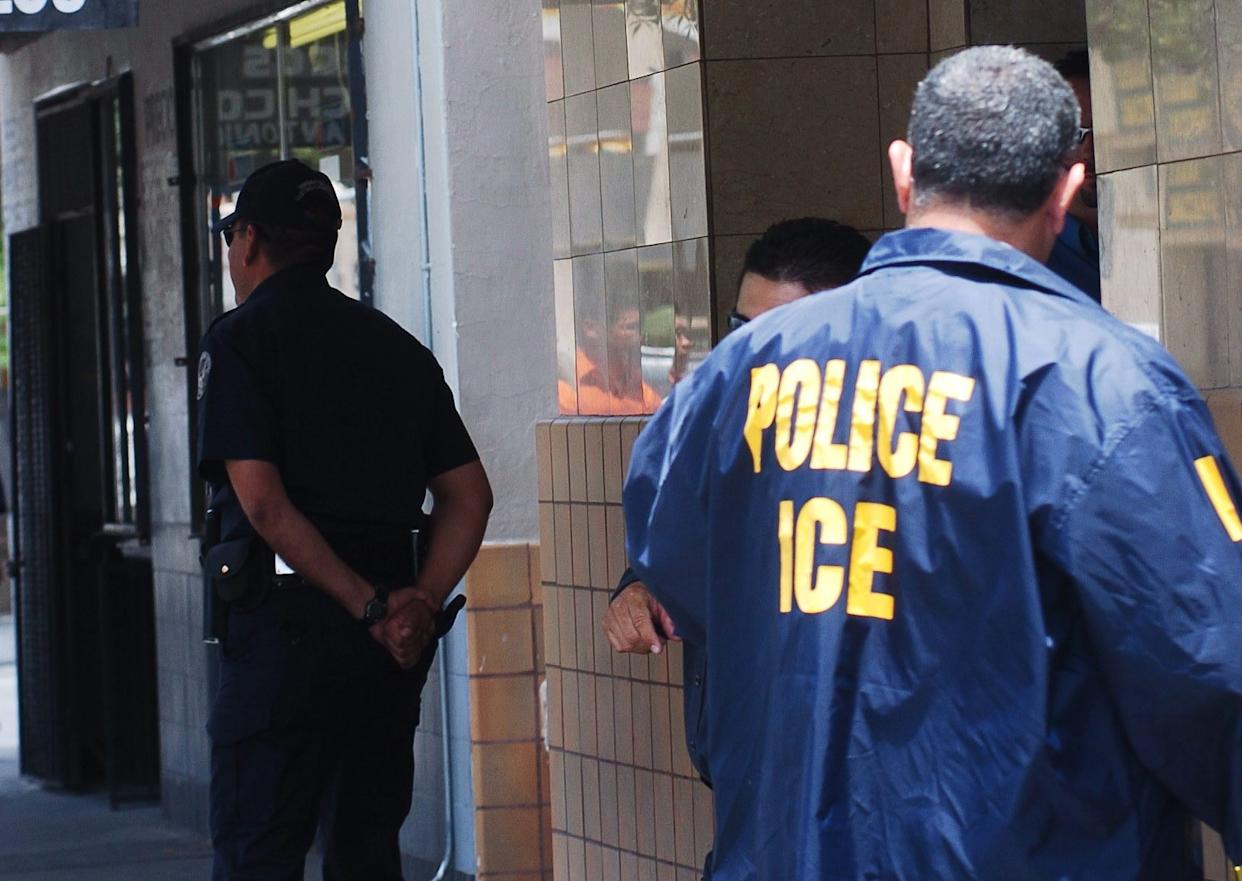International
Kamala Harris, the woman who could make history

Kamala Harris could make history as the first African-American woman and the first person of South Asian origin to reach the White House. He does so without hardly alluding to his gender or race and with the promise of opening a “new chapter” in the politics of the United States.
The career of Harris, 60 years old, has been marked by the first times: she was the first black district attorney and the first woman to serve as attorney general in California; the first Indian-American to reach the Senate and, when Joe Biden elected her, the first woman in the Vice Presidency.
However, he has preferred not to emphasize the historical nature of his possible arrival at the White House, in contrast to Hillary Clinton’s campaign in 2016.
In her biography, ‘The Truths We Hold’, she explains that she prefers to describe herself simply as “an American” and claims to feel comfortable with her identity as a mixed-race woman, despite Trump’s attacks, who has questioned whether she is African-American enough.
Harris is proud of her African-American and Indian heritage. Its name, which some Republicans pretend not to know how to pronounce to attack it, means “lotus flower”, a plant that emerges to the surface only when its roots are well anchored.
Born on October 20, 1964 in Oakland (California), she is the eldest daughter of Shyamala Gopalan, a cancer researcher from India, and Donald Harris, a Jamaican economist, who divorced when she was seven years old.
His mother, who died in 2009, was a central figure in his life and the person he went to at a decisive moment for his future.
The path to politics
During her adolescence, her best friend from high school confessed to having been a victim of sexual abuse by her stepfather. Harris did not hesitate to call his mother so that his friend could move in with them.
That’s when she found her vocation and decided to dedicate herself to protecting victims of any crime, which pushed her to become a district attorney in San Francisco (2004-2011) and then a California attorney general (2011-2017).
In 2016 he won a seat in the Senate and quickly stood out for his incisive questions to members of the Trump Administration (2017-2021), as well as two judges nominated by him for the Supreme Court, including Brett Kavanaugh, accused of sexual abuse.
In 2020 he launched to compete for the Democratic presidential nomination, but had difficulty defining his proposals. Biden ended up being the party’s candidate and elected her for the Vice Presidency.
Harris, married since 2014 to lawyer Douglas Emhoff, could barely shine in the White House. Biden commissioned him to tackle the “root causes” of migration in Central America, a cursed issue in US politics that has been unresolved for decades.
As part of that work, he traveled to Guatemala, where he starred in one of his most controversial moments by telling migrants who are trying to enter the United States: “Don’t come.”
Kamala Harris, to the election campaign
After a swee of criticism for the apparent lack of empathy, Harris withdrest from the public light. It came out again when the Supreme Court annulled the right to abortion at the federal level in June 2022, channeling the indignation of millions of women.
Thus, when Biden ended his electoral career in July of this year, Harris quickly built his candidacy around the concept of freedom: freedom for women to decide on their bodies and for every American to aspire to a better life.
To the rhythm of Beyoncé’s song ‘Freedom’, she has traveled the country shouting “we are not going to back down” and proclaiming that the US must decide at the polls if it wants a country of “chaos” and “hate” like the one established by Trump or one of “freedom” and “hope.”
His promise has been to unite the nation after years of tension and for this he has resorted to patriotic symbols, filling his rallies with US flags and adding support from republican figures such as former congressman Liz Cheney, daughter of former Vice President Dick Cheney (2001-2009).
Harris, who worked at a McDonald’s as a child, has positioned herself as the middle class candidate with the desire to reduce housing, food and drug prices.
It remains to be seen if the United States has heard its message and if that determination to change the course of the country convinces enough voters to make history.
International
Bolivia Orders Three Investigations Into Deadly Military Plane Crash

Bolivia’s Defense Minister Marcelo Salinas announced Monday that three separate investigations will be conducted into Friday’s crash of a military cargo aircraft at El Alto International Airport, near La Paz, which left at least 22 people dead.
The Hercules aircraft, operated by the Fuerza Aérea Boliviana (FAB), was transporting cash intended for the Central Bank of Bolivia when it overshot the runway after landing from the city of Santa Cruz. The plane reportedly traveled nearly one kilometer beyond the airport perimeter.
The incident sparked chaotic scenes, with individuals attempting to collect scattered banknotes. Authorities detained 51 people in the aftermath, and the government declared three days of national mourning.
Multiple Investigations Underway
The first inquiry is being led by a military board from the Bolivian Air Force, which has already taken custody of the aircraft’s black box for analysis.
Minister Salinas said two additional investigations will follow — one conducted by the insurance company and another by the aircraft’s manufacturer.
“At least two more investigations will come, that of the insurance company and that of the aircraft manufacturer,” Salinas said during a press conference in Santa Cruz.
He cautioned that the investigative process could take between three and six months, noting that the black box cannot be opened in Bolivia due to the lack of specialized laboratories for analysis.
Awaiting Official Findings
Salinas stressed that the FAB investigative board is the highest authority in the case and urged the public to wait for its conclusions to avoid speculation about the causes of the crash.
He also confirmed that the government has contacted the families of the 22 victims and the 37 injured, as well as the owners of 15 damaged vehicles, to coordinate procedures with the insurer and cover the corresponding expenses.
International
Mexico Calls for Immediate Probe After National Dies in ICE Custody

Mexico’s Secretaría de Relaciones Exteriores (SRE) on Monday called on U.S. authorities to conduct an “immediate and thorough” investigation into the death of a Mexican national while in custody of U.S. Immigration and Customs Enforcement (ICE) at a processing facility in California.
In a statement, the Mexican government described the death as “regrettable” and urged U.S. officials to clarify the circumstances surrounding the case in order to “determine responsibilities and ensure that such events do not happen again.”
Death at Adelanto Processing Center
According to available information, the Mexican citizen died at the Adelanto Processing Center in California while under ICE custody. Authorities have not yet released the individual’s identity or the cause of death.
Following the incident, Mexico’s Foreign Ministry formally requested “detailed information” from U.S. authorities, including the detainee’s medical records and custody reports.
Consular Assistance Activated
The Mexican Consulate in San Bernardino, California, has activated consular assistance protocols to provide ongoing support to the deceased’s family. Officials have contacted relatives to express condolences and offer legal guidance, as well as assistance with the necessary procedures to repatriate the remains.
“The handling of situations like this and the establishment of mechanisms to resolve them are priorities for the Government of Mexico,” the Foreign Ministry said, adding that it will formally request an investigation into any systemic conditions that may have contributed to such incidents.
Local Mexican media reported that seven Mexican nationals died while in ICE detention last year — the highest number recorded since the agency was created.
International
Anti-ICE Billboard Campaign Targets Immigration Spending in 31 U.S. Cities

More than 200 billboards criticizing U.S. Immigration and Customs Enforcement (ICE) began appearing Monday in 31 cities across the United States, including Miami, as part of a campaign highlighting the high cost of immigration enforcement operations for taxpayers.
The initiative, titled “ICE Costs Us,” was launched by the civil rights organization Mijente and will run for four weeks.
Criticism of Spending and Enforcement Tactics
The billboards feature images of ICE agents during arrests or carrying military-style weapons. According to the organization, spending on military-grade equipment for the agency has increased by 600 percent in recent years.
Several signs display messages such as:
“Your taxes are being wasted” and “ICE’s cruelty costs you $28 billion,” referring to the agency’s annual budget.
In a statement, Marisa Franco, co-founder of the Mijente Support Committee, said:
“For too long, our government has prioritized building cages and investing billions in an immigration enforcement apparatus that has left families torn apart and communities terrified.”
She added that “Millions of Americans are living paycheck to paycheck, yet this violent agency continues operating with a blank check. These decisions do not make us safer nor improve our economic security. Our billboards highlight these choices and demand a different path.”
Budget Debate and Medicaid Comparison
The campaign also draws a comparison between ICE’s funding and the estimated 17 million people who could lose health coverage under Medicaid due to federal budget cuts under President Donald Trump.
Other billboard messages seen in various cities include:
“They get billions to beat us; we get layoffs and rising rents” and “Funding ICE is a fast track to fascism.”
Organizers say the goal is to spark public debate about the allocation of federal funds for immigration enforcement and the broader economic and social impact of such policies on communities nationwide.
-

 International5 days ago
International5 days agoCocaine Production Surges 34% in 2023 as Market Expands into Africa and Asia
-

 International4 days ago
International4 days agoTrump Floats “Friendly Takeover” of Cuba Amid Rising Tensions
-

 International2 days ago
International2 days agoIran Reports 201 Dead, 747 Injured After U.S. and Israeli Strikes
-

 Sin categoría3 days ago
Sin categoría3 days agoTrump: ‘We Think It’s True’ Amid Claims Iran’s Supreme Leader Was Killed
-

 International3 days ago
International3 days agoSecurity Council to Hold Emergency Meeting on Middle East Crisis
-

 International5 days ago
International5 days agoFederal Judge Blocks Trump Policy Allowing Deportations to Third Countries
-

 International4 days ago
International4 days agoArgentina’s Senate Reviews Milei-Backed Labor Overhaul
-

 International2 days ago
International2 days agoPope Leo XIV Urges End to ‘Spiral of Violence’ in Middle East
-

 International14 hours ago
International14 hours agoBrazil’s Supreme Court Rejects Bolsonaro’s Bid for House Arrest
-

 International5 days ago
International5 days agoClinton Accuses Republican Committee of Using Epstein Case to Shield Trump
-

 International13 hours ago
International13 hours agoAnti-ICE Billboard Campaign Targets Immigration Spending in 31 U.S. Cities
-

 International13 hours ago
International13 hours agoTrump Warns of ‘Major Wave’ of Attacks as Iran Conflict Escalates
-

 International13 hours ago
International13 hours agoMexico Calls for Immediate Probe After National Dies in ICE Custody
-

 Central America13 hours ago
Central America13 hours agoPanama Canal Monitoring Trade as Middle East Conflict Disrupts Shipping
-

 International13 hours ago
International13 hours agoBolivia Orders Three Investigations Into Deadly Military Plane Crash




























